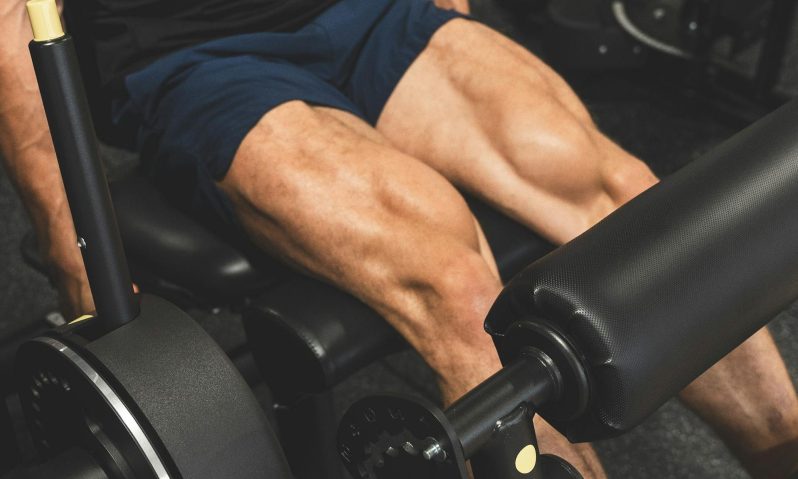Some fitness instructors and enthusiasts say you should push through the shaking when you’re working out because it’s a sign you’re making progress, while others warn that it’s a ‘yellow light’ or even a ‘red light’ that means you should stop. To shake or not to shake? Should you stop or continue?
A sign of weakness or muscle fatigue?

I had a personal experience with this when I was going through physical therapy, trying to strengthen atrophied muscles in my left side that were far weaker than my right side. I wasn’t able to walk on that left leg for a year and a half, so the muscles were definitely a lot weaker at the time. My quad muscles would shake even trying to balance and lower down on my left leg or perform a simple heel tap on that one side. I even began quietly singing to myself the 1960s ‘Jump in the Line Shake, Senora’ calypso song by Lord Kitchener, while watching my quad muscle shake and trying to balance.
My physical therapist at the time said the shaking was a sign of weakness and that it would get better over time. He said we shouldn’t push through it too much too soon, but at the same time, the main way to really build that muscle strength back up and increase the size was to continue working the muscles safely and effectively.
He designed a personalized exercise plan to strengthen my left thigh muscles. By the end of just over two months of physical therapy and working out, the shaking stopped, my heel taps improved, and I could stand and balance on that side, feeling stronger than before. I was already performing more challenging exercises, which was extremely rewarding.
Why do muscles twitch during exercise?

Your muscles can twitch and shake during exercise because your muscle fibers are tired or because they’re trying to perform a task they’re not typically used to, like trying a new movement or lifting a heavier weight. Your nervous system recruits more muscle fibers and fires more motor neurons to complete the task.
Shaking often happens when your muscles are weaker or trying a new move, which activates neuromuscular junctions and stimulates more muscle fibers. This makes sense in my case, and those heel taps became less shaky and more stable over time the more I worked out; I still had the urge to sing the song nonetheless. My personal trainer always made sure to remind me to take rest days, stay hydrated, and consume optimal nutrition and protein to help the muscle-building and strengthening process.
When it’s a problem

If you have twitches, tremors, and muscle shaking for hours after exercise, it’s a warning sign, and you should visit a healthcare provider to determine if you have an underlying condition.
In summary

To summarize, the main reasons muscles shake during exercise are:
- You’re not engaging the right muscles, so your body tries to compensate by activating other muscles.
- Your muscles are weaker or fatigued.
- You’re trying a new exercise your muscles aren’t accustomed to.
- You’re holding a position for an extended time, like a plank or wall sit.
- You’re exercising intensely and giving it your all.
Quivering muscles aren’t inherently bad for you, and there isn’t a potential danger unless you’re doing heavy lifting, in which case that’s a sign you need a spotter. Another time it could be a problem is if your muscles are shaking for hours after exercise. Mine stopped shaking pretty quickly, but I definitely had the typical muscle soreness resulting from a solid workout.
Even so, you don’t always have to push yourself to breaking point, and it’s important to avoid overexercising and include adequate rest days. You shouldn’t ignore muscle shaking, but it doesn’t necessarily mean you should quit your workout. The more you practice exercising and strengthen your muscles, the less likely they are to shake.




